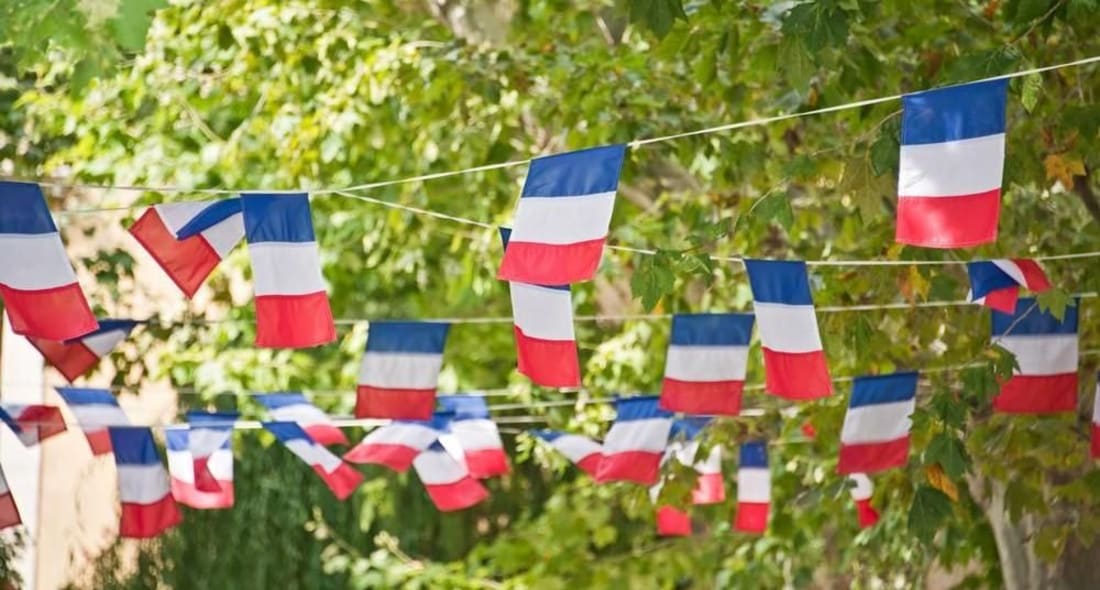Study Bachelor in France 2024
Study in France
France lies in Western Europe, with the Mediterranean Sea to the east, the Atlantic Ocean to the west, Spain to the south, Belgium and Luxembourg to the north and Germany, Switzerland and Italy to the east. This constitutional republic is known for its beautiful beaches, magnificent castles and palaces, fine wines, sophisticated cuisine and high fashion. The capital city, Paris, is home to iconic sites such as the Eiffel Tower, the Arc de Triomphe and the Champs-Elysees, as well as the imposing cathedrals of Notre Dame and Sacre Coeur. The nation has a longstanding history of nurturing some of the world’s greatest artists, writers, scientists and thinkers.
What Types of Schools Offer Undergraduate Studies in France?
Students pursuing higher education in France have many options. There are over 3,000 public universities to choose from, including several branches of foreign universities. While there are a number of large universities that offer a wide range of studies, the majority are small and tend to specialize in a particular field, such as political studies, economics, engineering and government administration. Grandes ecoles are extremely prestigious and selective, and each specializes in a single field of study.
Tuition Fees
The French government subsidizes education at all levels. While students are required to contribute to the cost of tuition, rates are relatively low. Private schools, particularly engineering and business schools, can be more expensive, with tuition rates similar to equivalent programs in other European countries. The location of the school impacts the cost of living a student should be prepared for.
How Long Is the Academic Year in France?
The academic year is divided into two semesters. Classes begin in September or October and end in May or June, depending on the university. Students take a two-week vacation over the Christmas and New Year holidays, and a two-month vacation during July and August for the summer holidays. Several religious and national holidays are also celebrated with one- or two-day long hiatus from classes.
How Long Does it Take to Earn an Undergraduate Degree in France?
A bachelor’s degree is also called a "Licence" or "Licence Professionnelle". Students must earn a minimum of 180 credits to complete this type of program. A full-time student who takes 60 credits per year can complete their degree in about three years. Some programs may take longer, particularly if they are research-based or include preparation for graduate studies.
Why Choose Undergraduate Studies in France?
French universities have welcomed students from around the world since the creation of La Sorbonne over 800 years ago. The government has introduced several policies that make it easy for foreign students to study undergraduate studies in France, a practice that has made French universities some of the most diverse and cosmopolitan in the world. Students can enjoy affordable tuition and knowledgeable professors in one of the most beautiful, culturally rich nations in the world.
Change currency
Basic monthly living cost
Rent in a shared flat
459Share of utilities
57Internet subscription
30Local transportation
61
Sample lifestyle cost
Fast food combo
10Cinema ticket
12Pint of local beer
6
About France
Higher Education in France
France is currently the fourth most popular study destination in the world, and it's no wonder
with its excellent culture, highly rated university system and the draw of relatively low tuition.Each year, close to 300, 000 students travel to France for the sole purpose of studying in its schools.
The higher education system in France can be a little confusing.The system is being standardized
into a three- level system, which makes it a little easier to understand.Today, undergraduate students will
begin by pursuing a License, which is similar to a bachelor's degree. This is followed by master level training. The final level of training is the doctorat. The license takes three years to complete, with two years necessary for a master program. A doctorat program usually requires three additional years.
France's universities are state-funded, so tuition is not high. Plan to spend about €200-€400 per year, depending on the studies you are pursuing and the university you attend. The exception to this are French business schools. Most business schools are privately owned, and tuition can be over €15,000 a year.
France has fairly open enrollment for first-year undergraduate programs. However, after the first year, students will need to pass a series of exams, which can be highly competitive, to find a place as second-year students. The country also has a system of selective schools called"Grandes Écoles"", which only
select students are chosen for, and these have selective entrance exams, higher tuition and more prestige.
The academic year in France begins in late September,
with a spring semester starting in early February.Holidays are held during Christmas and New Years, as well as All Saints ' Day and Easter.Most schools also have a spring break and three months of summer holiday.
Upon graduation, many students go
on to pursue scientific study programs.These one - to three- month programs can be subsidized through a high- level scientific study program
grant, which covers travel costs, tuition and living expenses.
Visa Requirements
If you are coming to study in France from a country in the European Union, you will not need to apply for a student visa.If your home country is outside the EU, then you will need to visit a French consulate to
get a student visa prior to traveling to the country.Your visa will serve as proof of your residency status during your first year of study.After a year, you will need to apply for a Carte de Sejour.Also, you will need to register with the local immigration office within 30 days of your arrival in the country.
Tips
Because of the lost cost of tuition and high interest by international students, you will want to make your plans for studying in France early.While entrance to the universities will not be much of a difficulty if you are a first - year student, finding housing and getting your paperwork in order takes some time.If you need financial aid, you will want to apply for a study or course
grant as well.
As you
prepare to study in France, you will be among some of the world's top thinkers. You'll have the opportunity to study in halls that were once graced by names like Sartre, Durkheim or Marie Curie. While the process of applying to the universities and working through the red tape can be daunting, in the end you will receive a quality education at a surprisingly affordable price, making the effort well worth taking.
Visa Requirements
There are different types of student visas, depending on how long you plan to study in France:
- Visa de court séjour pour etudes (‘Schengen’ short-stay student visa) - If your studies will last less than three months, then you should apply for the so-called Schengen student visa. It is issued free of charge and cannot be renewed. 41 countries may not need a visa for a stay of less than three months.
- Etudient concours (visa for sitting entrance exams) - On this visa, you can come to France to take an entrance exam at an institute of higher education. If you pass, then you can apply directly to your local prefecture (French local authority/administrative office) in France for a one-year, renewable, residence permit.
- Visa de long séjour temporaire pour etudes (temporary long-stay visa) - This visa allows you to study in France for between three and six months without the need for a residence permit. It is non-renewable.
- Visa de long séjour etudes (long-stay visa) - If you want to study for longer than six months, then you need to apply for the long term student visa in France. From 2013, this type of study visa now lasts for the duration of your course in France. Long-stay visas act as residence permits and are called VLT-TS.
- Extended stay research scholar visa - If you have a Master’s degree or higher and want to come to France to take part in research or teach at the university level, then the institution can bring you over on an extended stay research scholar visa VLS-TS.
What type of Visa do you need?
Visa name
Student Visa
Price and currency
EUR 50
Student visa fees range greatly, depending on the type of visa and the country where you come from. For students from the Schengen area, costs vary from 50 to 99 EUR. The short-term Shengen student visa is free of charge.
Who can apply for the visa?
If you are an EU national, or national from the EEA, Switzerland, Norway, Iceland or Liechtenstein, you do not require a French student visa.
If you are a national from anywhere else in the world, you will need to obtain a student visa for France. You need to have secured a place on a course at a French educational institution before applying for a visa.
Where can you make the application?
French embassy / consulate
Some countries require you to register first with CampusFrance, the French national agency for higher education, and international students, in order to apply for admission and get a student visa through the CEF procedure. Otherwise, you should get your visa at the French embassy/consulate in your home country.
Website:https://france-visas.gouv.fr/
How to make the application?
In order to apply for your visa, you will need the following:
- An official acceptance letter onto an accredited program at a French institution. This should be on officially headed paper, stating your full details, details of the French institution, and specifying the start and end dates of the academic program.
- Proof that you have sufficient funds (currently EUR 615 per month), for example, bank statement, guarantor’s letter, or notice of a grant or funding from an official source.
- Proof of return ticket home. Often this is in the form of the actual ticket or reservation showing the date of departure, but can be a handwritten statement of intent, including intended departure dates.
- Proof of medical insurance (minimum cover EUR 30,000).
- Proof of accommodation. Can be shown in the form of student housing confirmation or a certificate of board and lodging or ‘attestation d’accueil’ (if you’re living with friends or relatives).
- Proof of proficiency in French, if you are studying a French-language course.
There is a charge for the Visa application and you must also have a passport that is valid for a period of three months past your expiration date of the requested party. You must complete an application that you sign and must submit three photographs with the application.
When should you apply?
It can take up to two months for a Visa application to be approved, so you should submit all of the necessary information as quickly as possible before you plan to leave. ‘Schengen’ short-stay student visa lasts for 90 days, a temporary long-stay visa for three to six months, and a long-stay visa for the duration of your course: three years for bachelors, two years for a Master's, and four years for a Ph.D.
Processing time
2 Months
Work opportunities
As an international student with a study visa in France, you can work up to 964 hours in a single year (about 60 percent of full-time employment for a year) – while you are on the course, and as long as you have a valid residence permit.
Hours per week
0
Why do you need this type of visa?
When completing your application for a France Visa it is essential that you complete the application in its entirety. You shouldn’t leave anything blank as this can greatly delay the application process. You also need to make sure that you have all of the documents that are needed and submit them with the application.
Institutions
- General Assembly
- Toulouse INP
- ICD Business School
- CY Cergy Paris Universite - Institute of Economics and Management
- Université Toulouse III Paul Sabatier - Toulouse Graduate School of Earth and Space Science
- EDHEC Business School
- Centrale Méditerranée
- Centrale Lille
- Forward College
- Institut Lyfe (formerly Institut Paul Bocuse)


